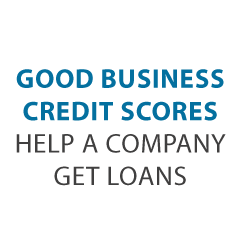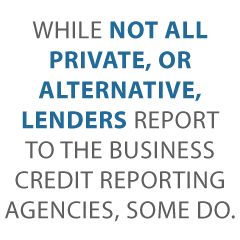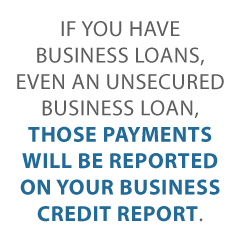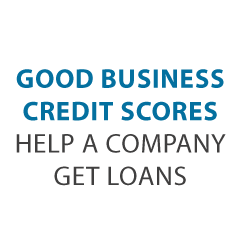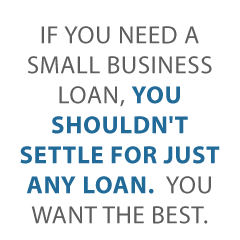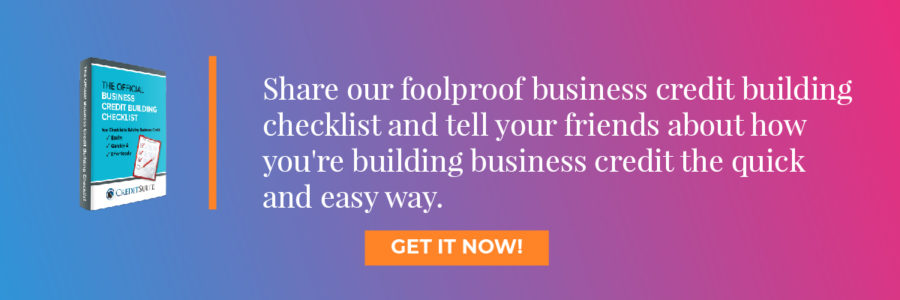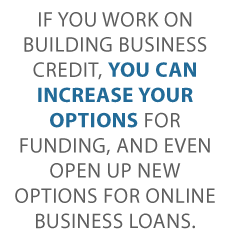How to Hunt down and Capture Low Rate Small Business Loans
When Indiana Jones was on the hunt for a rare artifact, he always knew everything he possibly could about it before he got started. His treasures were always surrounded by mystery, but he was able to find them based on the information he learned. The same is true of low rate small business loans. By learning as much as you can about them, you empower yourself to not only find them, but to bring them home.
Everyone wants low rate loans, but not everyone can get them. It takes a special type of lender and borrower. We can tell you how to be the right borrower and how to find the right lender. Let’s start with the basics.
What is the Interest Rate?
Lenders don’t let you borrow money out of the kindness of their hearts. Unless they are specifically designed as a non-profit entity, lenders are in it for the money. The main way they make money is by lending you money, and requiring you pay back what you borrowed, plus some. The amount of the plus some is dependent on the interest rate. It is a percentage of the amount you borrowed that you must pay the lender in return for allowing you to borrow the money. In short, it is the cost of the loan.
It’s important to remember that there are often other costs associated with loans in the form of various fees. The interest rate however, is how the bread is buttered.
Learn business loan secrets with our free, sure-fire guide.
What’s Qualifies as a Low Rate?
The next logical question that comes to mind when thinking about low rate small business loans may be, what qualifies as a low rate? I mean, you have to know exactly what it is you are looking for. When talking about business loans, an interest rate lower than 10% is low. There are not a ton of these out there, and they are hard to get, but they do exist. That’s what makes them a treasure worth hunting.
Who Gets Low Rate Small Business Loans?
Not only are low rate small business loans rare, but the borrowers that can obtain them are even more rare. The thing is, it takes a borrower with a good credit score, solid revenue, and an established business to get this kind of treasure.
Why is this? Well, higher interest rates are a way to balance out perceived risk. If a lender sees you as a potential risk, they want to ensure they get as much of their money as they can. They raise the interest rate so that they get more profit with each payment you make. If they think that you are a low risk borrower, they will be willing to lend more money at a lower rate. That’s because they are not as concerned that you will default on the loan.
Which Types of Lenders Offer the Lowest Rates?
The other thing that makes low rate small business loans a rare treasure is that you can’t get them from just any lender. As a general rule, the lowest rates come from traditional lenders. These are the big banks, community banks, and credit unions.
These lenders all lend directly, but some also partner with the Small Business Administration to offer lower rates to those that would otherwise not qualify for them. Find out more about the Small Business Administration here.
Small Business Administration Low Rate Small Business Loans
The SBA offers a number of loan programs through partners lenders. They vary in uses and eligibility requirements. Some of the most popular include:
7(a) Loans
This is the Small Business Administration’s main loan program. It offers federally funded term loans up to $5 million. Funds are allowed to be used for expansion, purchasing equipment, working capital and more.
The minimum credit score to qualify is 680, and there is also a required down payment of at least 10% for the purchase of a business, commercial real estate, or equipment. The minimum time in business is 2 years. They’ll accept experience equal to two years in the case of startups.
504 Loans
These loans are also available up to $5 million and can buy a number of things includings land, facilities, and even machinery. Terms range from 10 to 20 years, and funding can take from 30 to 90 days. They require a minimum credit score of 680. They consider the asset that the funds are used for to be collateral. There is also a down payment requirement of 10%, which can increase to 15% for a new business. You must be in business for two years or have equivalent management experience if you are a startup.
Learn business loan secrets with our free, sure-fire guide.
Microloans
Microloans are available in amounts up to $50,000. They are are good for starting a business, purchasing equipment, buying inventory, or for working capital. Community based nonprofits handle microloan programs as intermediaries. Financing comes directly from the Small Business Administration.
Interest rates run 7.75% to 8% above the lender’s cost to fund, and the terms go up to 6 years. Funding may take up to 90 days, and the minimum credit score is 640. Collateral and down payment requirements vary by lender.
SBA disaster loans
Available in amounts up to $2 million, these are actually processed directly through the SBA. They are available to small-business owners that have been affected by natural disasters. Terms go up to 30 years, and the maximum interest rate is 4%.
The minimum credit score for disaster loans is 660. Collateral is necessary if the loan goes over a certain amount, usually $25,000, if it is available or when it becomes available. For a military economic injury disaster that amount is $50,000. There is no down payment requirement regardless.
SBA Express loans
These loans max out at $350,000 and have a maximum interest rate of 11.50%. Terms range from 5 to 25 years, and the SBA guarantee is less than with their other loan programs at 50%. To qualify, your credit score must be above 680, and you must have a debt to service ratio of 1.1 or higher. If the loan is greater than $25,000, collateral may be necessary depending on the lender.
The turnaround for express loans is much faster, with the SBA taking up to 36 hours to give a decision. Necessary paperwork for application is less also, making express loans a great option for working capital as well as other things.
Low Rate Small Business Loans from Alternative Lenders
There is no way around the fact that alternative lenders have higher interest rates. They cater to those that do not qualify for loans from traditional lenders. Consequently, they are catering to borrowers that are innately higher risk. They do the same as any lender, and increase interest rates to balance out the risk.
Far and away SBA loans are the best bet for most when it comes to low rate small business loans. If your business is strong but you don’t quite hit the mark for a standard loan, they are a great option. The application process is much longer and way more involved that others however.
There are a couple of alternative lenders than have streamlined the process.
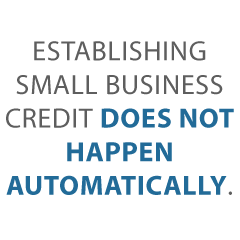
This lender offers loans backed by the SBA that borrowers can use for a variety of purposes. Examples of acceptable uses include working capital, inventory, expansion and debt consolidation. If you want $150,000 or less, they require a credit score of at least 600, $50,000 annual revenue, and a minimum of 2 years in business. For amounts higher than $150,000, the requirements are the same except the credit score minimum increase to 650.
Live Oak Bank
This is another option for a faster SBA loan process if your business is part of one of 17 specific industries. These industries include:
- accounting and tax firms
- Agriculture/poultry
- Automotive
- Educational services
- Family entertainment
- Funeral service
- Government contracting
- Healthcare and dental
- Hotel
- Insurance
- Investment advisory
- Pharmacy
- Renewable energy
- Self-storage
- Senior care
- Veterinary
- Wine/craft beverage
The minimum credit score for these loans is 650, but the other requirements are pretty lose. For income, they only require that cash flow can support the debt. There is no minimum time in business requirement.
How to Turn the Tide of Low Rate Small Business Loans in Your Favor
Once you understand how things work, you can get a handle on why these loans seem to stay just out of your reach. The thing is, there is no way around the fact that a higher credit score translates to lower interest rates. The thing to do then, would be to increase your credit score. It won’t seal the deal, but it will take you almost all the way.
When you are a business however, you have two scores to worry about. You need to ensure your personal credit score stays up to par for a number of reasons, but you also need to be concerned with your business credit.
Here’s the thing. In general, you need your business credit to be completely separate from your personal credit. All of your business financing should ideally be based on your business credit. Practically however, it doesn’t work this way. Most traditional lenders, the ones with those low rate small business loans, look at your personal credit score.
In addition, a couple of the business credit reporting agencies use your personal credit score in your business score calculation. That means that even though you definitely need the scores to be separate, you cannot forget about your personal score, even when it comes to business financing.
How Do You Improve your Personal Credit Score?
The first thing you do is get a free copy of your credit report. You can get one each year. Take a look at it and review what it on it. If you see mistakes, dispute them with the credit agencies in writing. Then, look at what may be negatively affecting your score. Are you making late payments? Stop that. Paying on time is non-negotiable for improving credit.
Look at your balances in relation to your limits. Are you close to your limits? Pay those balances down as soon as possible. That has a definite negative affect on your score. Another issue is the average age of accounts. If all of your accounts are relatively new, that is going to bring your score down. There isn’t a lot you can do about that other than just wait, but be aware that each time you add a new account, the average age of your accounts decreases.
Build and Improve Business Credit
Business credit is credit in a business’s name. It doesn’t attach to a business owner’s individual credit. When you have business credit, business transactions do not affect your personal credit at all. Consequently, an entrepreneur’s business and individual credit scores can be very different.
How to Get Business Credit
Establishing small business credit does not happen automatically. A business must work intentionally to make it happen. The first step is to appear fundable to lenders and vendors. This begins with how you organize your business. Sole proprietorship may be the easiest option, but it is also the most sure-fire way to ensure your business accounts end up on your personal credit report.
You need to choose to operate as either an LLC, S-corp, or a corporation. For business credit purposes it doesn’t matter which one. Choose the option that best fits your tax needs. You’ll also need an EIN. It is an identifying number for your business similar to how an SSN is a personal identifying number. Get an EIN and start the incorporation process at IRS.gov.
A professional-looking website and email address are also important. Web hosting should be bought from a merchant like GoDaddy, not from a free service. A free email account will not work either. It needs to have the same URL as your website.
A dedicated business telephone number and address that are not the same as yours are necessary as well. Be sure there is a business listing on 411. You can do that here.
In addition, you need a business bank account. Be sure it is in the business name and that only business transactions run through it.
Learn business loan secrets with our free, sure-fire guide.
Once you have all this in place, go ahead and apply for a D-U-Ns number. Just go to the D&B website. A D-U-N-S number is how D&B gets a business in their system. Therefore, if you do not have one, you do not have a business credit score with Dun & Bradstreet. Since they are the largest and most commonly used business credit reporting agency, you need a D-U-Ns number to have business credit.
What Next? Building and Improving Business Credit
After all of this is set, you have to get accounts reporting. If you already have business credit but need to improve it, you will follow this same process.
Start with establishing trade lines that report. Do this with vendors that are in the vendor credit tier. Then you’ll have an established credit profile, and you’ll get a business credit score. With an established business credit profile and score you can begin to acquire credit in the retail and cash credit tiers.
The vendor credit tier including those vendors that will extend net 30 terms without checking your credit, and then they will report your payments to the business credit reporting agencies. Find out more about the business credit building process here.
Monitor Your Business Credit
You can’t stop there. You will not know what kind of credit you have or if you can move on in the tiers without monitoring your credit. Go to www.creditsuite.com/monitoring to do so at a fraction of what it costs with the credit agencies directly. There is no option for a free business credit report like there is with personal credit reports.
Low Rate Small Business Loans Exists and Your Business Credit Can Help You Get Them
Now the big question. Low rate small business loans generally come from traditional lenders. Traditional lenders look at your personal credit score. How can business credit help you get low rate loans?
If your personal business score isn’t quite up to par, but you have an established business with a strong business credit score that meets the other requirements, they may be willing to give a little. There is no guarantee, but it does happen. Either way, a strong business credit score means you can access the business funding your need through another channel, even if the traditional ones don’t pan out. It’s a virtual guarantee you can get the funding your need to grow your business.
The post The Treasure Hunt for Low Rate Small Business Loans appeared first on Credit Suite.


